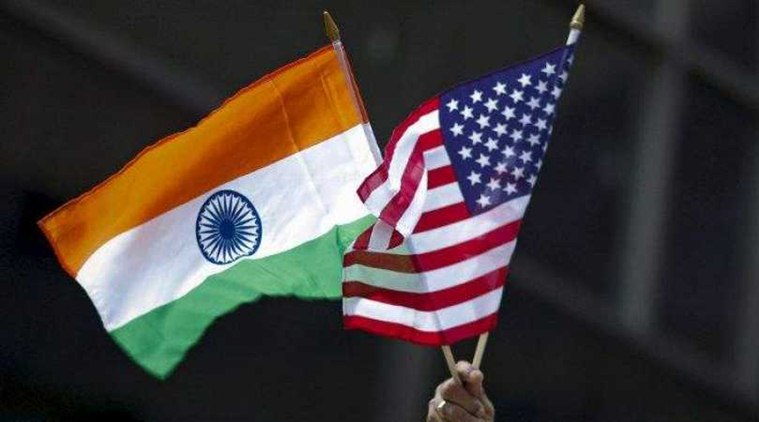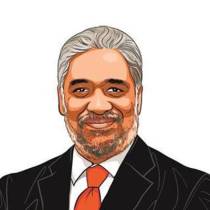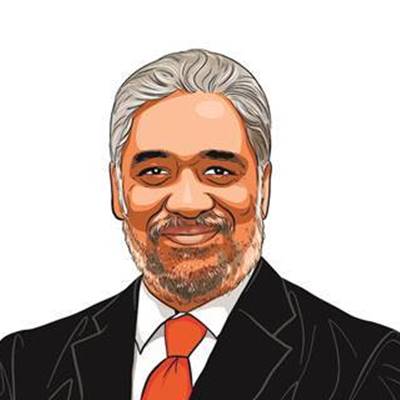Raja Mandala: Shifting sands in West Asia
With Iran sanctions, Donald Trump has embarked on a new course. Delhi needs to devote greater energies to the unfolding changes.

Delhi’s efforts to deal with these difficult challenges in an unforgiving region constantly run into the tension between pragmatism and high-minded foreign policy rhetoric.
When it comes to the Middle East, the political discourse in Delhi tends to oscillate between extremes. One the one hand are the grandiloquent themes — solidarity with the Arabs and Muslims of the region and supporting their battle against imperialism and Zionism. On the other hand are such mundane considerations as where the next barrel of oil comes from and its price. And the safety and security of millions of Indians working in the region.
Delhi’s efforts to deal with these difficult challenges in an unforgiving region constantly run into the tension between pragmatism and high-minded foreign policy rhetoric. Adding to Delhi’s woes, India’s Middle East policy has long been tied to domestic political contestation on “secularism” and “minority appeasement”. Facts from the ground have rarely mattered in India’s domestic political arguments about the Middle East but have continuously challenged India’s diplomacy in the region.
America’s renewed sanctions on Iran, which kicked in Monday this week, mark the beginning of a new crisis in the Middle East. Delhi needs to pay attention to three major trends that are changing the big picture in the Middle East.
The first is about the nature of confrontation between the US and Iran. The sanctions regime against Iran, according to the US’s official claims, is one of the toughest the world has known. Their objective is not just about getting Tehran to renegotiate the terms of the nuclear agreement of 2015 that Iran signed with the US and the international community. Their goal is to change the “behaviour” of the regime if not the regime itself. To put simply, we are taking an economic war against Iran that could escalate into a military conflict.
The conflict is not limited to the US and Iran. Whether we like it or not, many of Iran’s Arab neighbours, including Bahrain, Egypt, Saudi Arabia and Egypt, support the Trump Administration’s offensive against Tehran. For they fear Iran’s growing power and the assertion is threatening to undermine their national coherence and security. They believe that the 2015 nuclear agreement empowered rather than constrained Iran. Israel fully shares this understanding.
The second trend is the unfolding normalisation of relations between Israel and the Gulf countries. The tone for new thinking was set at the highest levels in the region by Oman’s Sultan Qaboos bin Said who received the Israeli Prime Minister Benjamin Netanyahu in Muscat last month. This was the first time in more than two decades that an Israeli PM was travelling to the Gulf.
Oman’s Foreign Minister Yousuf bin Alawi bin Abdullah explained the decision by pointing out that “Israel is a state present in the region, and we all understand this. The world is also aware of this fact. Maybe it is time for Israel to be treated the same [as other states] and also bear the same obligations.”
Beyond this high-profile visit, there is growing engagement between Israel and the Gulf across a broad spectrum. Miri Regev, Netanyahu’s minister for sport and culture, was in Abu Dhabi last month cheering an Israeli team participating in an international judo competition. She also visited the Grand Mosque in Abu Dhabi and declared that her visit was about promoting peace and prosperity in the Middle East. Beyond sport and culture, there have been unconfirmed reports on the growing intelligence exchanges and security cooperation between Israel and some Gulf countries.
Third, the Trump Administration is promoting a new framework for peace between Israelis and Palestinians. Billed as the “Deal of the Century” and led by Jared Kushner, the president’s son-in-law and adviser, the peace plan is likely to be unveiled in the days ahead. The current Palestinian leadership believes the plan will be even more one-sided in favour of Israel than the one the US was backing before.
The Trump Administration, which has discarded the traditional approaches to peace in the region, is betting that Saudi Arabia and other Gulf Arabs will help nudge the Palestinians into accepting a new deal. For Washington, the political crisis over the killing of Khashoggi has come in handy to pressure Saudi Arabia into facilitating peace deals in Palestine and beyond in Yemen and Syria.
The idea of a grand transformation in the Middle East has tempted other American presidents before. The US invasion and occupation of Iraq in 2003 was driven by the ambition to promote democracy in the region. Now again, the Trump administration is hoping that a renewed confrontation with Tehran will create the conditions for the overthrow of the Islamic Republic and rearrange the regional order
Washington thinks that the threat from Iran can be leveraged to build a new Middle East Security Alliance of Sunni Arabs and help settle the Palestine question. But the region’s internal contradictions, for example between Turkey and Saudi Arabia, and the interests of the other great powers like Russia and the European Union will probe the gap between American ambition and regional reality.
What matters in the end, however, is the fact that Trump has embarked on a bold new course in the Middle East. Like President George W Bush’s invasion of Iraq in 2003, the latest American venture too will have many unintended consequences. As its stakes in the region grow by the day, Delhi needs to devote ever great amounts of diplomatic and political energies to deal with the unfolding changes in the Middle East.
The writer is director, Institute of South Asian Studies, National University of Singapore and contributing editor on international affairs for The Indian Express
For all the latest Opinion News, download Indian Express App
More From C. Raja Mohan
- Raja Mandala: India, China and the INF TreatyProposed US withdrawal from the three-decade-old disarmament pact with Russia presents both a challenge and opportunity for India...
- Raja Mandala: The great Sunni divideJamal Khashoggi’s murder bares the sharp differences between Saudi Arabia and Turkey. US has its work cut out in resolving the conflict...
- A diplomatic blind spotDelhi focuses narrowly on its own interests, tends to recoil from any political discussion of the existential challenges to the Arab Gulf. ..








































No hay comentarios:
Publicar un comentario